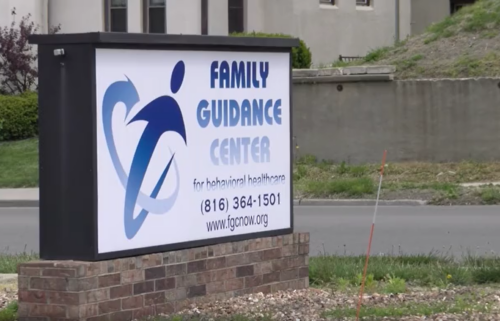Allergy season could be coming sooner than expected

By Jazmine Knight
With the spring season approaching sooner than usual, pollen and the seasonal allergies that come with it are emerging.
Sufferers of seasonal allergies most often experience sneezing, congestion, runny nose and itchy eyes. Some even experience a loss of taste or smell due to nasal congestion.
Dr. Melvin McFarlin, medical director at Urgent Care Express, said the severity of allergies depends on the type of foliage that blossoms.
“With the tree pollens, we start seeing the trees bloom and we start seeing grass coming up. You can start reacting. It depends on how significant the allergies are,” he said.
With illnesses like colds, flu and COVID still circulating, determining what’s causing specific symptoms can be a little tricky.
The flu, McFarlin said, has a fast onset, usually within three to four days of exposure.
“Flu is pretty quick and it’s like, ‘Wow, it’s 2 p.m. and I felt like I got hit by a truck,’” he said. “Those symptoms are kind of the headache, body aches, fevers we typically see with flu.”
However, the symptoms depend on which pathogen you contract.
With COVID, typically most experience symptoms similar to the flu along with the loss of taste and smell. With COVID, the onset ranges from two days to two weeks from exposure.
Colds come from those around you who are ill or coughing and sneezing.
“Usually those symptoms go with some congestion, some maybe a little sore throat, just in general not feeling well,” McFarlin said.
However, with a cold, you should still be able to perform your normal daily activities and it should only last for a week.
Allergies follow a seasonal pattern and last for a longer period if untreated. Usually, most people do not experience a fever with allergies.
“You can get maybe a low-grade fever, but any temperature that’s 100.4 or greater, you start thinking away from allergens and colds and more toward infections like viruses or bacteria,” McFarlin said.
In terms of preventing those seasonal allergies, McFarlin shares a few tips.
“One thing is it’s kind of counterintuitive, but you want to close your windows. So if the allergens are outside, you don’t want them in the house,” he said. “Using your air conditioner, having HEPA filters and those types of things, making sure you have a really good diet rich in the things that we typically get from our diet, like our vitamins.”
Some of the best vitamins to boost immune health include C, D and all the B varieties.



